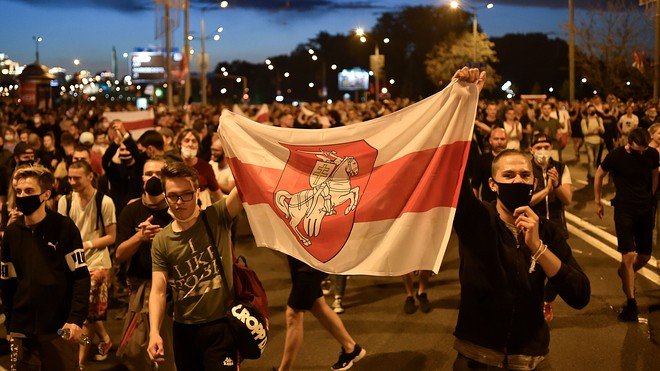Clashes In Belarus May Lead To Lukashenko’s Re-election

Belarus: Protesters and riot police have clashed in Belarus's capital Minsk and other cities after a state TV exit poll said long-time leader Alexander Lukashenko was re-elected in Sunday's election.
Police used stun grenades, rubber bullets and water cannon. A human rights group said one protester was killed and about 120 arrested.
Mr Lukashenko won 80% of the vote, according to a preliminary count.
But the main opposition leader has refused to recognise the results.
"We have already won because we have overcome our fear, our apathy and our indifference," Svetlana Tikhanovskaya said.
The preliminary results give her 9.9% of the vote, but her campaign said she had been polling 70-80% in some areas.
Ms Tikhanovskaya entered the election in place of her jailed husband and went on to lead large opposition rallies.
Mr Lukashenko, 65, has been in power since 1994.
The lead-up to Sunday's poll saw a crackdown on activists and journalists amid the country's biggest opposition demonstrations in years.
Demonstrators took to the streets in central Minsk as soon as voting ended and the exit polls were released late on Sunday.
Many chanted "Get out" and other anti-government slogans. Riot police fired stun grenades, used batons, and made arrests as they dispersed the demonstrators.
Tens of thousands defied an escalating crackdown on the opposition last month to attend a protest in Minsk, the largest such demonstration in a decade.
Since the start of the election campaign in May, more than 2,000 people have been detained, according to Human Rights Centre Viasna.
On the eve of the vote, Ms Tikhanovskaya's team said her campaign manager had been arrested and would not be released until Monday.
And on Sunday, as people voted, internet service was "significantly disrupted", according to online monitor NetBlocks. Opposition supporters say this makes it harder for evidence of election fraud to be collected and shared.
There were already concerns over a lack of scrutiny because observers were not invited to monitor the election and more than 40% of votes were cast ahead of election day.















































